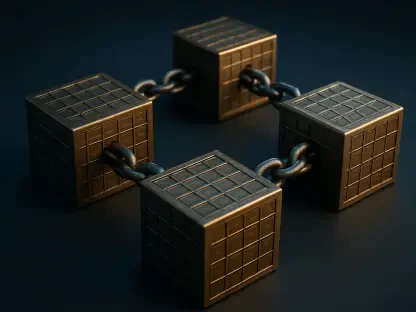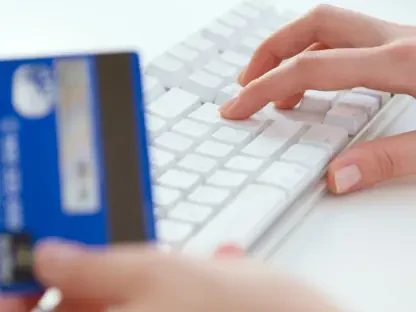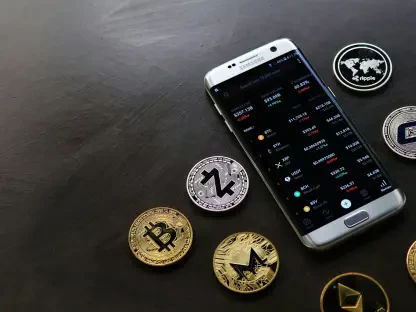The world of finance stands at the cusp of a monumental transformation driven by Decentralized Finance (DeFi), which promises to reshape the landscape of financial services as we know it. As traditional banking systems continue to grapple with systemic and geopolitical risks, inefficiencies in international settlements, and credit availability issues, a paradigm shift is evident. DeFi seeks to address the fundamental flaws that exist within conventional financial structures, eliminating human error and poor decision-making. Offering a streamlined and autonomous approach to transactions, banking, borrowing, and investing, DeFi introduces a future where financial services are increasingly digital, open, always-on, and borderless.
Tokenization of Real-World Assets
Unlocking Liquidity with Tokenized Collateral
One of the most noteworthy trends in DeFi is the tokenization of real-world assets, encompassing anything from real estate and fiat currencies to bonds. This process involves converting physical assets into digital tokens on the blockchain, thereby enabling these assets to serve as collateral in next-generation DeFi lending markets. By utilizing established cryptocurrencies like Bitcoin and Ethereum as pristine collateral governed by smart contracts devoid of third-party intervention, the DeFi ecosystem paves the way for new financial possibilities. The tokenization of physical assets mirrors these practices and relies on oracles for real-world pricing and cash flow data, permitting individuals and institutions to unlock liquidity and access lending services on a global scale.
The benefits of tokenized assets extend beyond mere accessibility. Imagine a scenario where someone tokenizes a piece of real estate; this tokenized asset can now be fractionalized, making it easier for investors to own a portion of the asset without the complexities of physical ownership. This fractional ownership not only democratizes investment opportunities but also creates a more liquid market where assets can be traded seamlessly. The use of oracles ensures that asset prices are constantly updated with real-time data, providing transparent and accurate valuations that reinforce the security and reliability of these financial instruments.
Ensuring Security and Compliance
The integration of real-world assets into the DeFi sphere necessitates heightened security and regulatory compliance. Smart contracts, which are self-executing agreements coded to carry out specific actions when predefined conditions are met, play a crucial role in maintaining the integrity of tokenized assets. These contracts ensure that all transactions are transparent, immutable, and free from human intervention, significantly reducing the risk of fraud and human error. Additionally, regulatory frameworks are gradually evolving to accommodate this new wave of financial innovation, aiming to strike a balance between fostering growth and ensuring consumer protection.
Tokenization also enables more efficient and cost-effective cross-border transactions. Traditional methods of international transfers can be slow and laden with fees, but digital tokens facilitate instant and low-cost exchanges, bypassing the need for intermediaries and reducing the overall transaction time. This efficiency is particularly beneficial for businesses and investors looking to diversify their portfolios across different jurisdictions. The global nature of DeFi ensures that financial services are accessible to anyone with an internet connection, thereby fostering financial inclusion and economic empowerment on a global scale.
Always-On Lending Marketplaces
24/7 Accessibility and Transparency
Another revolutionary trend in the DeFi sector is the creation of always-on lending marketplaces, which provide continuous platforms for lending, borrowing, and asset swapping. Unlike traditional banks, which operate within set business hours, these DeFi platforms function 24/7, offering round-the-clock financial services. The use of transparent smart contracts on these platforms reduces hidden leverage and rehypothecation risks, ensuring a healthier and more secure lending environment. For instance, Bitcoin holders can leverage technologies like wrapped Bitcoin (wBTC) to borrow stablecoins on platforms such as Aave without having to sell their Bitcoin holdings, thus maintaining their exposure to Bitcoin’s price appreciation while securing loans with digital collateral.
The seamless operation of these platforms is facilitated by smart contracts, which execute transactions automatically once specific conditions are met. This automation eliminates the need for manual oversight, reducing the potential for errors and delays. Additionally, the transparency inherent in blockchain technology ensures that all transactions are publicly recorded and verifiable, fostering trust among users. By making financial services available at all times, DeFi platforms cater to the needs of a global audience, transcending geographical and temporal limitations.
Reducing Risks with Digital Collateral
One of the key advantages of always-on lending marketplaces is their ability to mitigate risks associated with traditional banking systems. Hidden leverage, where financial institutions borrow excessively against their assets, often leads to systemic vulnerabilities and crises. DeFi platforms address this issue by providing transparent and verifiable data on collateral and leverage. Smart contracts ensure that all collateral requirements are met before loans are disbursed, reducing the risk of defaults and insolvencies. Moreover, the use of digital collateral, such as cryptocurrencies, adds an extra layer of security, as these assets are resistant to physical damage and are stored on the blockchain.
Borrowers benefit from competitive interest rates, which are dynamically adjusted based on supply and demand, ensuring optimal utilization of resources. This dynamic rate adjustment contrasts with the fixed rates offered by traditional banks, providing a more efficient and responsive lending environment. Additionally, borrowers can access a wider range of financial products, including stablecoins, which offer the stability of fiat currencies while retaining the advantages of blockchain technology. These features collectively contribute to a more robust and resilient financial ecosystem.
Becoming Your Own Bank
Empowering Financial Autonomy
Perhaps the most revolutionary aspect of DeFi is the empowerment it offers individuals to become their own banks, managing their assets securely and autonomously without relying on traditional financial institutions. Advanced multi-party computation (MPC) wallets allow users to store and manage their assets with on-chain verification, ensuring that they have full control over their holdings. This self-sovereign approach reduces the risks associated with bank failures and insolvencies, offering a more secure and resilient alternative. Individuals can now store value in stablecoins, invest in digital assets, and access decentralized lending and borrowing services independently, thus fostering greater financial autonomy and resilience.
MPC wallets utilize cryptographic techniques to enable secure transactions without revealing the private keys, ensuring that users retain full control over their assets. This secure method of storage is complemented by the decentralized nature of DeFi platforms, which distribute control across a network of nodes, reducing the risk of single points of failure. Users can participate in various financial activities, such as staking, yield farming, and liquidity provision, all while maintaining full control over their assets. This level of autonomy was previously unimaginable in traditional banking systems, where individuals had to rely on third parties to manage and safeguard their wealth.
Innovations in Asset Management
DeFi also introduces innovations in asset management that further enhance financial autonomy. Tools such as separately managed accounts (SMAs) allow individuals to hold their assets in individual digital vaults, ensuring that their investments are securely managed and protected. These accounts provide a personalized approach to asset management, enabling users to tailor their investment strategies to their specific needs and risk profiles. The use of blockchain technology ensures that all transactions and holdings are transparent and verifiable, providing an added layer of trust and security.
Moreover, DeFi platforms offer a wide array of financial products that cater to different user preferences and goals. From high-yield savings accounts to decentralized insurance, users have access to a diverse range of options that were previously the domain of institutional investors. This democratization of financial services opens up new opportunities for wealth creation and financial growth, empowering individuals to take control of their financial futures. As DeFi continues to evolve, it is poised to revolutionize the way assets are managed, offering unprecedented levels of autonomy, security, and efficiency.
The Future of Financial Services
The financial world is on the brink of a significant transformation thanks to Decentralized Finance (DeFi), which aims to revolutionize financial services as we know them. Traditional banking systems are still struggling with issues such as systemic and geopolitical risks, inefficiencies in international settlements, and issues with credit availability. This ongoing struggle makes a shift in the paradigm all the more necessary. DeFi addresses these fundamental flaws by eliminating human error and poor decision-making. It offers a more streamlined and autonomous approach to transactions, banking, borrowing, and investing. With DeFi, financial services become increasingly digital, open, always-on, and borderless. The promise of DeFi is a future where financial interactions are conducted in a more efficient, transparent, and inclusive manner. As the financial landscape continues to evolve, the innovations brought by DeFi may very well become the new standard, paving the way for a more secure and versatile economic environment.









